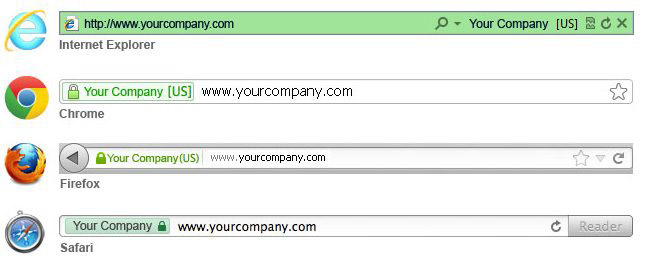
Secure Your Website Now With SSL!
Raise the level of security and protect your customers by giving them security and confidence to make transactions on your site. We offer various security products from worldwide known brands and a wide range of SSL certificates, backed by our personalized attention and our high quality support. Increase your sales by showing how serious you are about security to your clients installing a renowned brand SSL certificate, increasing the trust and sales in your site.
THE SSL BENEFITS
Commonly Asked Questions
If your website contains logins or web forms getting personal information from customers or gets credit card information from customers, then you need to purchase an SSL certificate. If you do not secure your site with an SSL, there is a sure chance that the data can be exposed to a third party and you lose the credibility of your website visitors.

An EV certificate is designed to prevent phishing attacks and provides the highest level of assurance to your customers. It requires extended validation of your business and authorization to order the certificate (you will be asked to submit a few documents). It can take a few days or few weeks for a certificate authority to issue an EV certificate for a domain. But, it provides maximum assurance to customers by making the address bar of the customer’s browser turn green when they visit your site.
For example: A Wildcard certificate issued to “*.mydomain.com” can be used to secure the following domains:
– login.mydomain.com
– secure.mydomain.com
– support.mydomain.com
– www.mydomain.com etc.
Along with multiple subdomains, a Wildcard SSL will also secure naked mydomain.com
Certificates with Extended Validation are the top class of SSL available today. They provide the highest level of user trust among all certificates on the market. These certificates protect data transmission and assure your website visitors they’re dealing with a legal and trustworthy company verified by an established Certificate Authority such as Comodo, Symantec, GeoTrust or Thawte.



